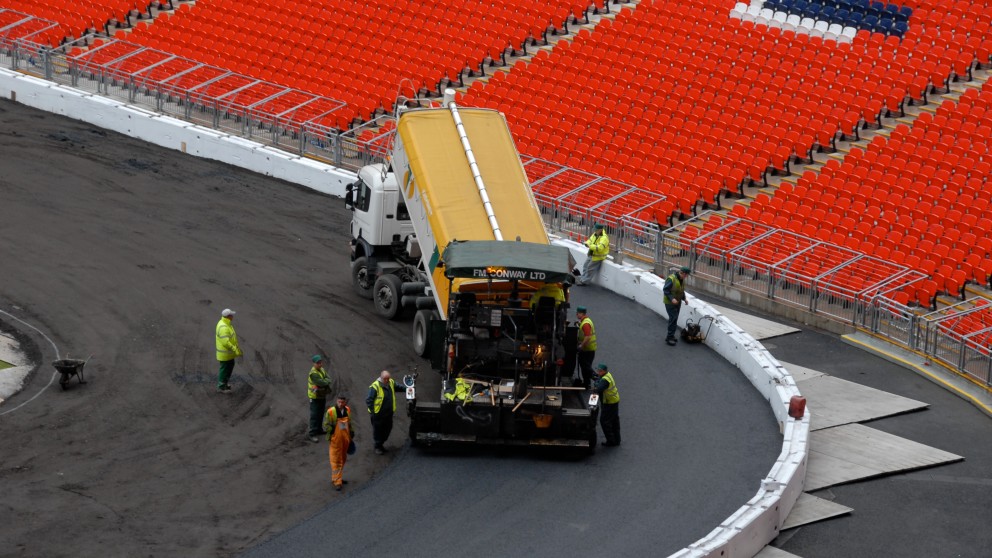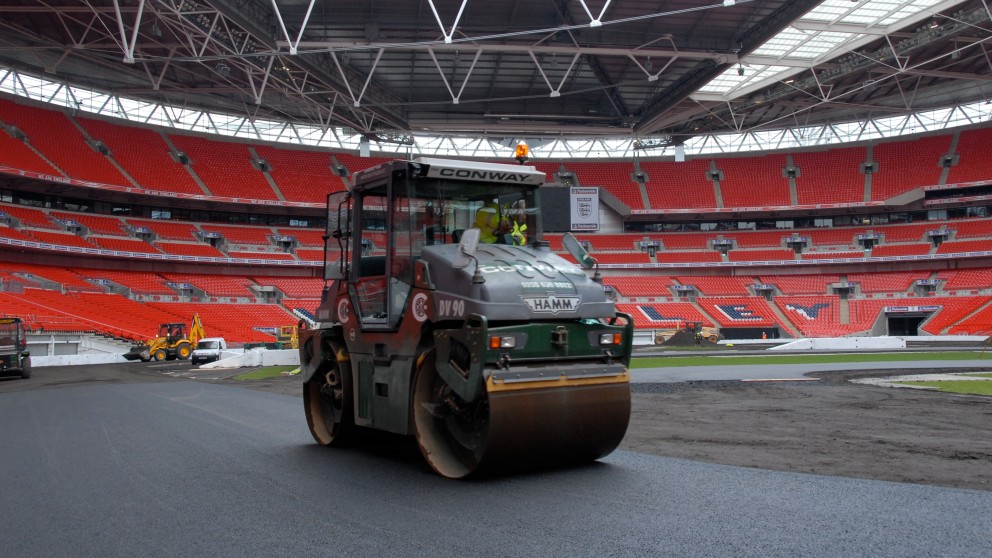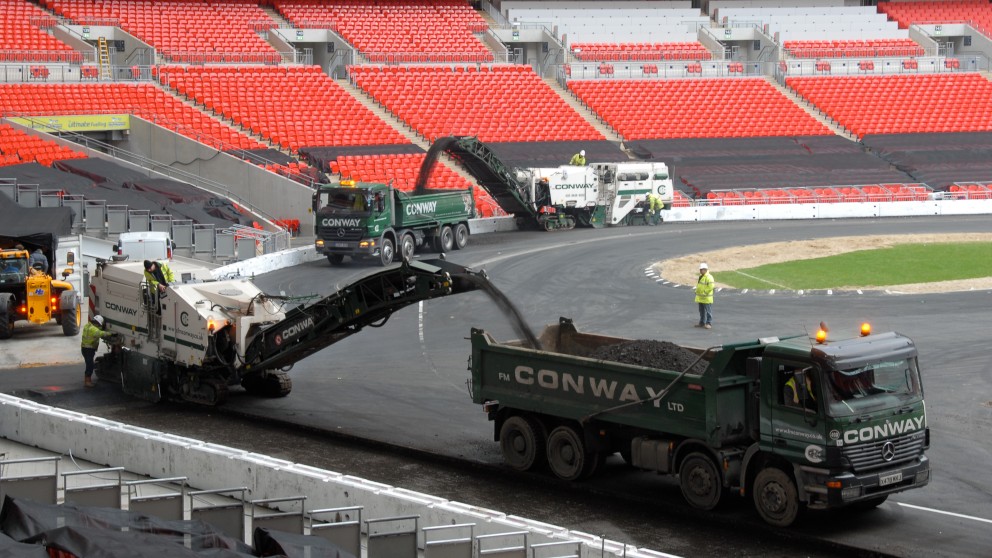Maximum thrill at the “Race of Champions”
The world’s top drivers went head to head in London on 16 December 2007 to decide who would be the champion at the Race of Champions. Machinery from the three German brands of the Wirtgen Group played a key role in the success of the top-class race: The spectacular motor sport event was staged at the new Wembley Stadium.

Local contractor FM Conway took a team of Vögele pavers, Hamm rollers and Wirtgen milling machines to the starting grid. Conway, a customer of sales and service company Wirtgen Limited, had won the prestigious contract to overlay the pitch with an asphalt pavement for the motor racing track. Two cold milling machines milled off the material right after the race: the famous football stadium was restored to its original condition.
The event organizer had invited drivers from Formula 1, rally racing, American NASCAR, Le Mans 24 hours and touring cars, including Mattias Ekström, seven times Formula 1 world champion Michael Schumacher and current Formula 1 drivers David Coulthard, Jenson Button, Heikki Kovalainen and Sebastian Vettel. Mattias Ekström beat Michael Schumacher in the best of an exciting three-heat final. The champion from Sweden took the crown for the second year running.
Working for the organizers and co-founders of the race, Fredrik Johnsson and Michèle Mouton, Conway built the approximately 1 km long twin parallel-lane asphalt racing track for the drivers to race side by side in identical cars. A 40 strong team and their fleet of Wirtgen Group machines worked round the clock for six days prior to handing the track over on 30 November 2007 for final preparations for the race. Preparation of the track required a great deal of care. Conway initially placed 8,500 aluminium protection plates over the Wembley turf along the line of the twin track, together with 400 m of standard motorway barrier along the corners of the track. The team then followed on placing about 2,400 t of recycled milled material on the plates as a base layer for each of the two tracks, which was compacted by two Hamm HD 90 and DV 90 VV rollers assisted by a Hamm tandem vibratory roller of the new Compact Line, a HD 14 VV. The base layer was then overlaid with 1,140 tons of asphalt binder course and the final surface course using a pair of Vögele 1803-1 wheeled pavers: “Our client wanted a smooth running surface that drove well, but didn’t have too much grip,” says Conway Surfacing Director Nick Burman. “We used our high-quality Vögele pavers and Hamm rollers that are part of our fleet and which we normally use in the London area on congested and tight roads where we need versatile and manoeuvrable plant that is also capable of high volume production.”

After the race, Conway returned to Wembley very early in the morning of 17 December. A team of 16 worked round the clock for three days this time to remove the 4,400 tons of asphalt again prior to handing the pitch back to the Wembley Stadium grounds men in top condition. The key equipment consisted of two cold milling machines, a W 2000 and W 2100, both of which loaded into a 30 strong fleet of 20- ton capacity trucks. Both milling machines were operating at full speed, taking out in one pass the two binder layers, the wearing course and the base layer. The layer thicknesses varied between 11 cm up to a maximum of 30 cm. Each of the high-performance milling machines was able to load a 20-ton truck in about 3 minutes. As a matter of the company’s policy – Conway won the “Legacy Award for Sustainability” last year – the 4,400 tons of milled material were recycled and then reused in the company’s other contracts. “Our W 2000 and W 2100 are high-production machines and proved ideal for the Wembley contract,” adds Nick Burman. “We have several Wirtgen milling machines that we mainly use for big projects in London where we need to take out and put material back down in the same shift to get the road open for traffic the following morning.” “There’s nothing to beat Wirtgen milling machines, and my W 2000 is a great machine and very reliable for the type of work we do,” says W 2000 operator Dave Monk. “It has a very good steering lock and is extremely manoeuvrable, so that it can get into some very tight places.”

“The job has gone extremely well,” says Conway Project Manager Clive Carter. “The key to success was preplanning and the equipment we used. We could take out all the material in one pass. Our sweepers then came in and cleaned off the small remainder from the aluminium plates prior to lifting them out and handing the pitch back to the grounds men.”
-
- Job site:
-
- Job site:
- Wembley-Stadion, London